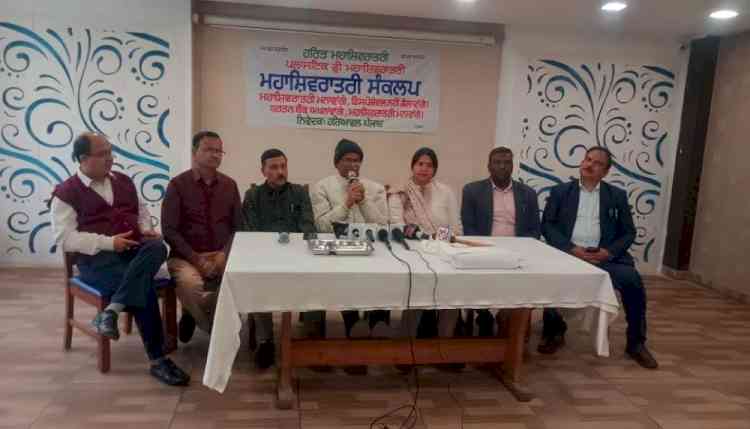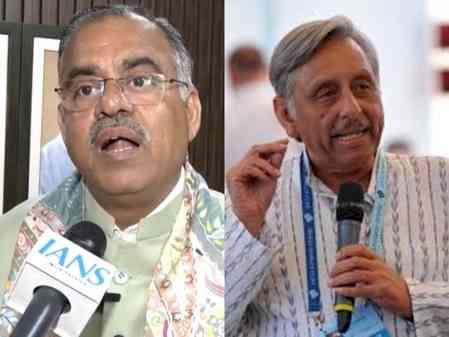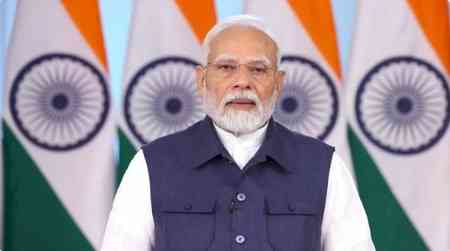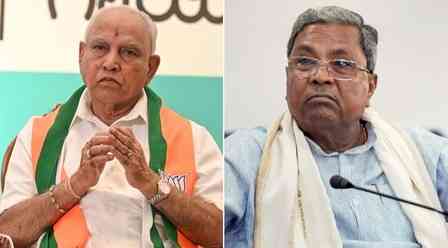Hariyawal Organization Launches Green Maha Shivaratri Awareness Campaign
Plastic Waste Harms the Five Elements: Praveen Kumar

Chandigarh, February 19, 2025: After the success of the Ek Thaali, Ek Thaili campaign at the Prayagraj Kumbh Mela, the Hariyawal Punjab organization has now launched the Green Maha Shivaratri Awareness Campaign.
At a press conference held on Tuesday at the Chandigarh Press Club, the organization's State Coordinator Praveen Kumar shared details about the campaign. He mentioned that the main objective of the campaign is to make the country plastic-free and cancer-free. To promote a cleaner and healthier environment, the organization is contacting local communities, religious leaders, and various social, volunteer, and religious groups. They are urging them to avoid using disposable items during the langars (community kitchens) held during the Maha Shivaratri celebrations and to serve prasad (offerings) in steel plates instead. The response to this initiative has been highly encouraging. Along with Praveen Kumar, the state religious head Sandeep Kashyap, cow service head Vinod Kumar, education head Dr. Pradeep, environment nodal officer Dr. Suman Mor, and Rakesh Sharma, head of the Panchnad Research Institute's Steering Committee, were also present at the event. Praveen Kumar emphasized that Lord Shiva is an embodiment of nature, and the entire world is the creation of Lord Vishwanath. Lord Shiva is visible in eight direct forms: water, fire, earth, air, space, moon, sun, and the soul of the devotee. From an Indian perspective, Lord Shiva is the direct form of all living beings and the natural elements that nourish and sustain the world. He is the father of all sentient and non-sentient beings. Just as a father is pleased with his children when they do well, Lord Shiva is pleased with those who protect and preserve the environment and its components from harm, ensuring they remain pollution-free and nurturing. Any harm caused to these eight forms of nature is considered as harming Lord Shiva himself. He further explained that plastic waste severely harms the five elements. Plastic discarded in the open gets carried by rainwater into rivers and lakes, polluting the water. Plastic waste obstructs sewage drainage, and the microplastics that spread on the earth disrupt the infiltration of rainwater into the soil. As a result, the water table is declining. The growing presence of plastic waste in the fields reduces soil fertility and negatively impacts crop quality. The plastic waste piles up, resembling a heap of garbage at monuments like the Qutub Minar, diminishing the beauty of cities and nations. Plastic, which does not decompose for hundreds of years, contaminates the air when burned. Poor waste management practices often lead to plastic waste being incinerated, releasing toxic substances into the air. Each year, millions of people lose their lives due to poor air quality, and millions suffer from long-term health effects. Over 90% of the world's population breathes polluted air. Plastic waste that ends up in the oceans poses a deadly threat to marine life. Thousands of fish, turtles, cows, and birds ingest plastic, mistaking it for food, which leads to their death. The harmful chemicals in plastics mix with water and food, causing cancer, hormonal imbalances, and other serious diseases. When hot food is served in plastic plates, bowls, or glasses, they become carcinogenic. Using disposable utensils to serve or consume food is harmful and sinful. Praveen Kumar also highlighted the success of the Ek Thaali, Ek Thaili campaign at the Prayagraj Kumbh Mela in 2025, which aimed to make the event green, holy, and clean. The campaign was carried out by the Environmental Protection Activity, successfully collecting cloth bags and steel plates from across the country and sending them to Prayagraj to reduce plastic waste. It was estimated that if every individual generates 120 grams of plastic waste daily, then one crore pilgrims would produce 1200 tons of waste in a single day. During the Prayagraj Kumbh Mela, 10.25 lakh steel plates, 13 lakh cloth bags, and 2.5 lakh steel glasses were distributed for free. This helped spread the message of environmental cleanliness to every household. With the participation of millions of families, the nationwide Green Kumbh campaign was a huge success.


 City Air News
City Air News 










